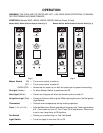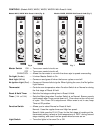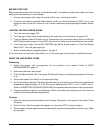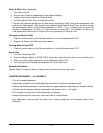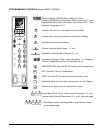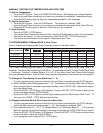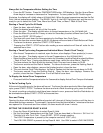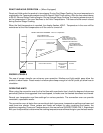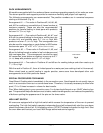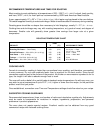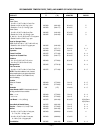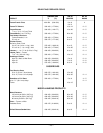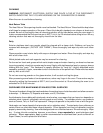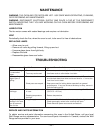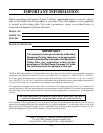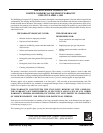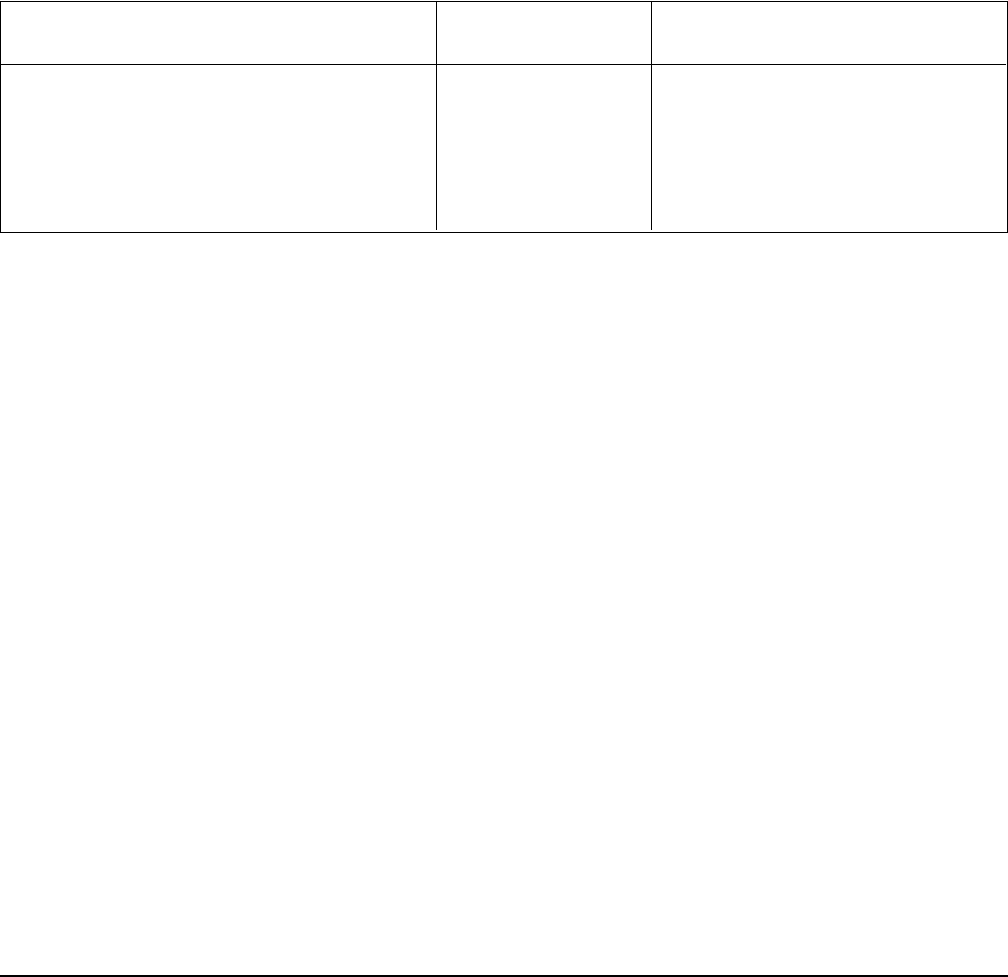
– 18 –
RECOMMENDED TEMPERATURES AND TIMES FOR ROASTING
Meat roasting is most satisfactory at temperatures of 225 – 325°F
(107 – 162°C) for beef, lamb, poultry,
and ham; 325°F
(162°C) for fresh pork as recommended by USDA and American Meat Institute.
A pan, approximately 12" x 20" x 1"
(30.4 x 50.8 x 2.5 cm), full of water may be placed in the oven bottom.
This water supplies humidity to reduce shrinkage. Water should be added if necessary during roasting.
Roasting pans should be no deeper than necessary to hold drippings, usually 2 – 2
1
⁄2" (5.1 – 6.4 cm).
Cooking time and shrinkage may vary with roasting temperature, cut, grade of meat, and degree of
doneness. Smaller cuts will generally show greater time savings than larger cuts at a given
temperature.
ROASTING TEMPERATURE CHART
TEMP
PRODUCT
°F(°C) APPROXIMATE TIMES
Standing Rib Roast — Oven Ready 250 (121) 3 to 4 Hrs. — Rare
4 to 4
1
⁄2 Hrs. — Med.
Rolled Rib Roasts — 20 to 22 lb. (9.1 to 10 kg) 275 (135) 4 Hrs. — Med.
Veal Roast — 15 lb. (6.8 kg) 300 (148) 3 Hrs. — Med. Well
Turkeys — 15 to 20 lb. (6.8 to 9.1 kg) 300 (148) 3 Hrs.
Meat Loaf — 8 to 10 lb. (3.6 to 4.5 kg) 350 (176) 45 to 60 Minutes
COOKING HINTS
Forced air convection cooking is faster than conventional oven cooking, and therefore, overcooking
is more common. Do not cook products faster than is practical for the best results. Since forced
convection supplies heat to the surface of the product, the thicker or more massive a product is for its
type, the longer it will take to absorb enough heat to cook.
The oven will cook or bake full or partial loads at standard recipe temperatures. As with any oven, you
may wish to use a temperature of up to 25 F°
(14 C°) higher or lower than the recipe, for the particular
product result that you prefer.
Once established, convection oven Time and Temperature settings should be noted on your recipe.
SUGGESTED COOKING GUIDELINES
Recommended temperatures, times, and number of racks are intended as a guide only. Adjustments
must be made to compensate for variations in recipes, ingredients, preparation, and personal
preference in product appearance.
The oven does not require special recipes. Excellent results can be obtained from any good
commercial recipe with reduced cooking times.



